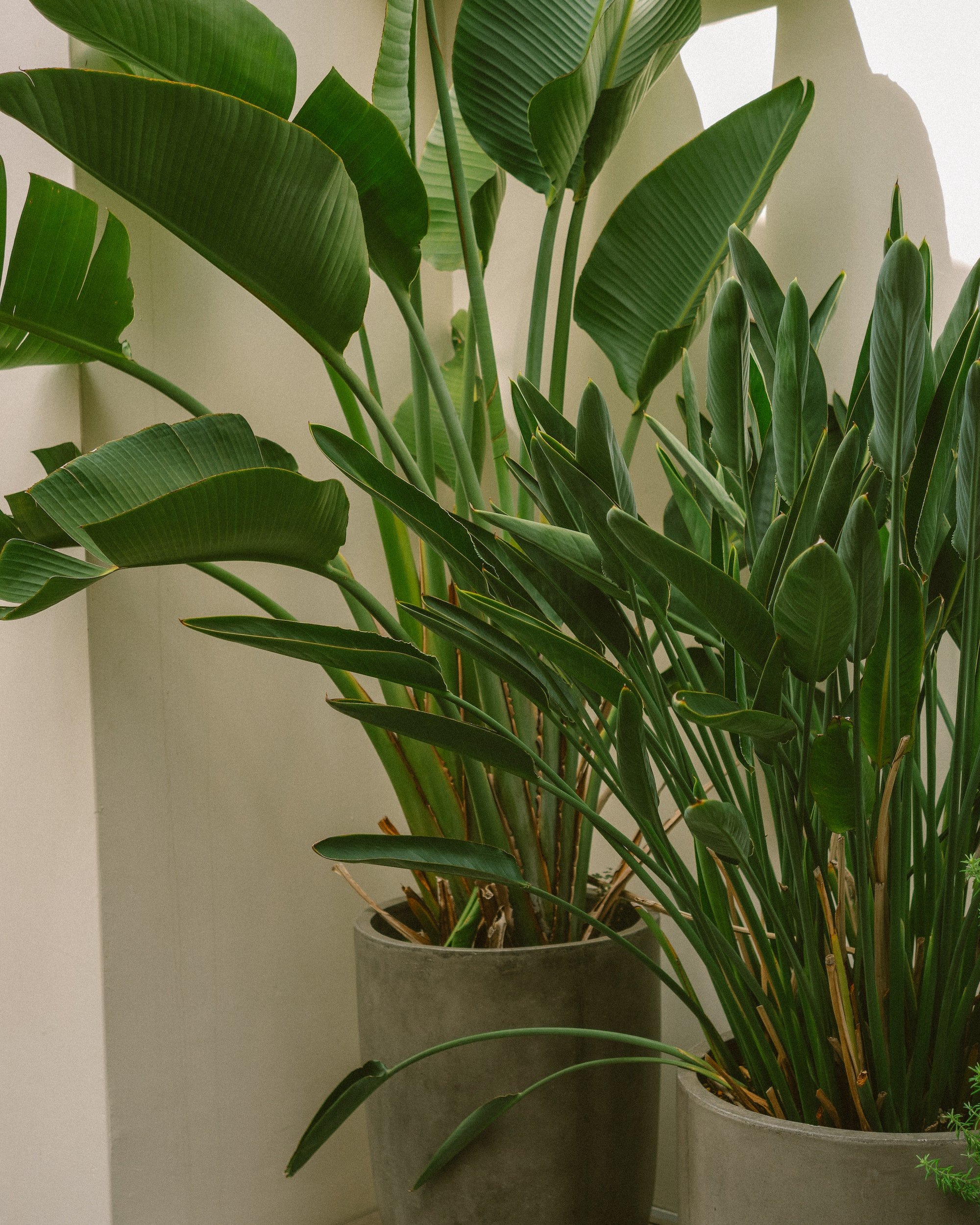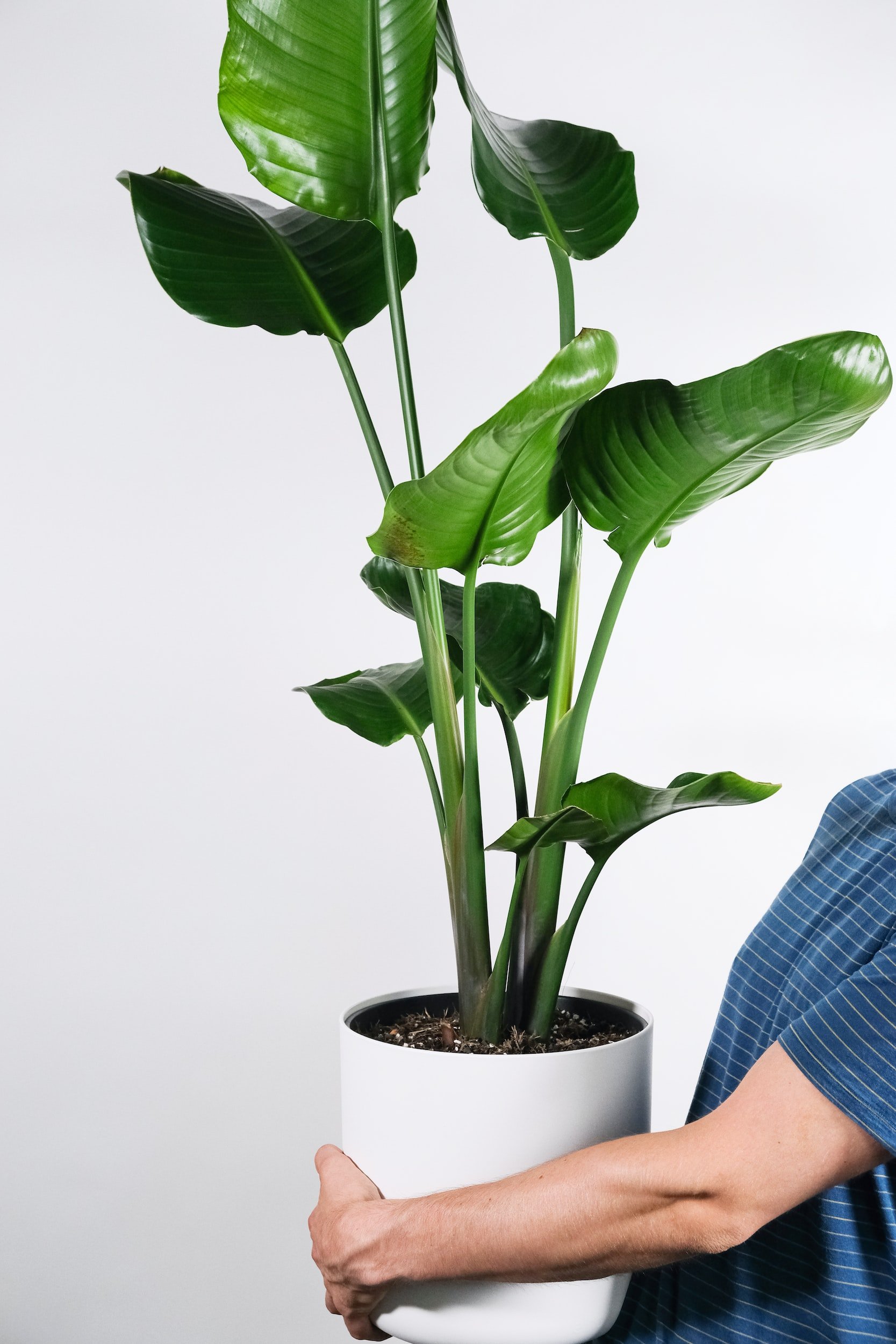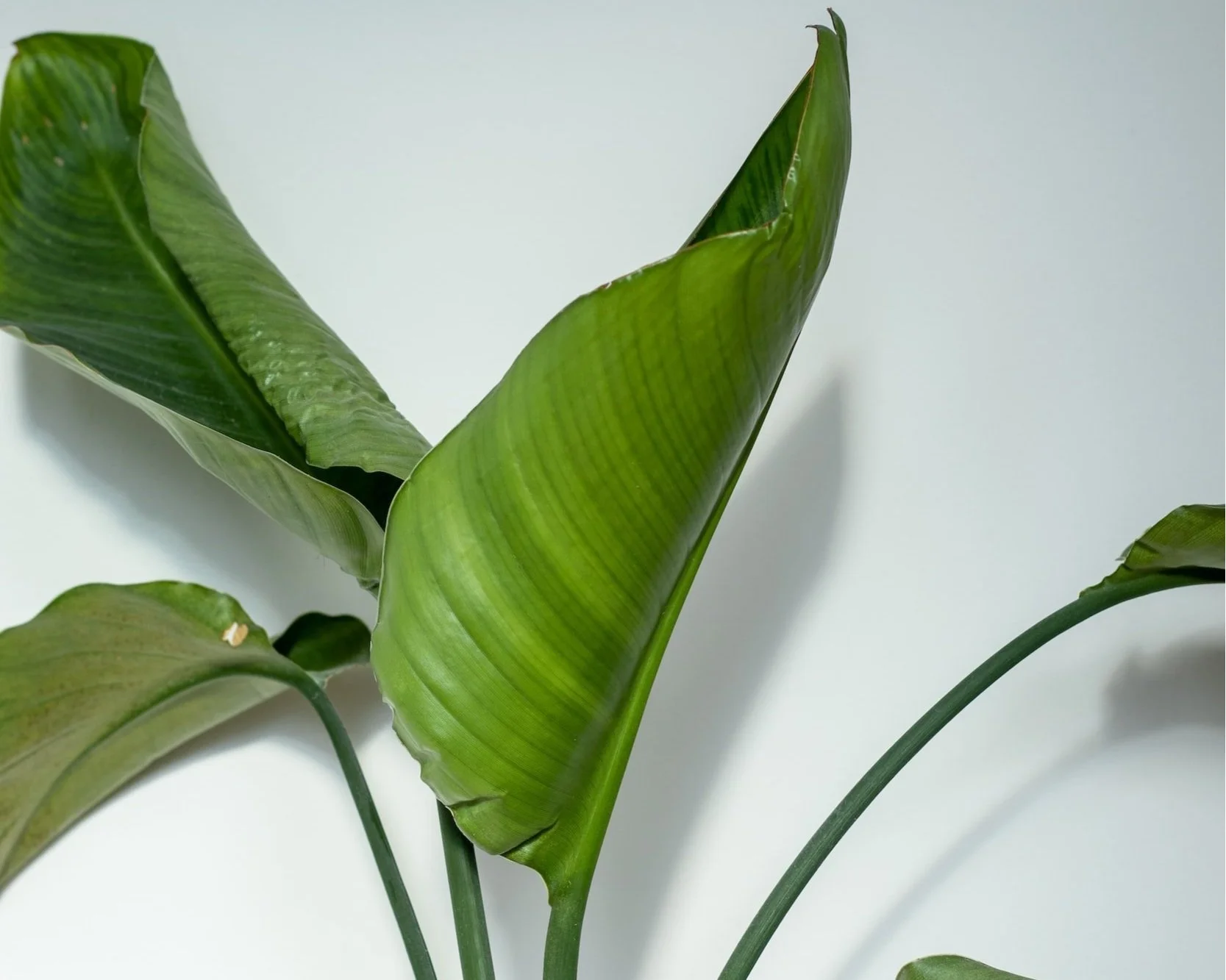Plant Profile
Strelitzia
a.k.a. Bird of Paradise
Strelitzia, most commonly called the Bird of Paradise plant, is a fast growing, evergreen, tropical plant that is native to South Africa. We love it for its strong, architectural feel that brings instant jungle vibes. There are five main species of Strelitzia, however only two species are commonly grown as houseplants; Strelitzia Reginae and Strelitzia Nicolai. When grown indoors these plants can grow up to 6 feet tall, and its leaves will naturally ‘shred’ or split as it matures.
Top Tips
✔ Boosting humidity levels is key for this one - mist the environment regularly, or position near a humidifier.
✔Clean down the leaves regularly with a damp cloth to remove dust + aid photosynthesis
✔ You can remove older leaves as they droop - new leaves grow from the center and help to keep the plant balanced.
✔ If possible it is best to water the plant using distilled water.
Plant Care
-
In order to thrive, the Strelitzia needs to receive bright light, including some direct sunlight. However, the plant should not be exposed to the direct midday sun as this can burn its leaves. Placing the Strelitzia in a room that has east or west facing windows is ideal.
-
During the spring and summer the soil should be kept moist, whilst during the autumn and winter the top soil should be allowed to dry out between waterings. The Strelitzia should never be allowed to sit in water.
-
The Strelitzia prefers slightly higher humidity so misting the plant occasionally is recommended.
-
The Strelitzia is a heavy feeder as it is a fast growing plant. During the active growing period a fertiliser should be used once a month, whilst during the winter no fertiliser needs to be used.
-
This plant is not tolerant of the cold and should not be exposed to temperatures below 15°C.
-
This plant is toxic; keep away from children and pets.
-
The Strelitzia can be propagated either by seeds or through dividing the plant’s rhizome whilst repotting.
-
For the first few years the Strelitzia should be repotted annually during the spring. Once the plant has reached maturity, after around 4-5 years, it will need to remain pot-bound in order for it to be able to bloom.




Quick plant check up
Curling leaves
This problem is more common in younger plants and is probably due to the plant receiving too much light and needs to be moved to a slightly darker spot. Although older plants thrive in bright light, younger plants need some time to adjust to this level of light.
Leggy plant growth
This could be the result of the plant being positioned in a spot that is too dark. Move the plant to a brighter place and it should help to encourage new leaves to grow closer together.



